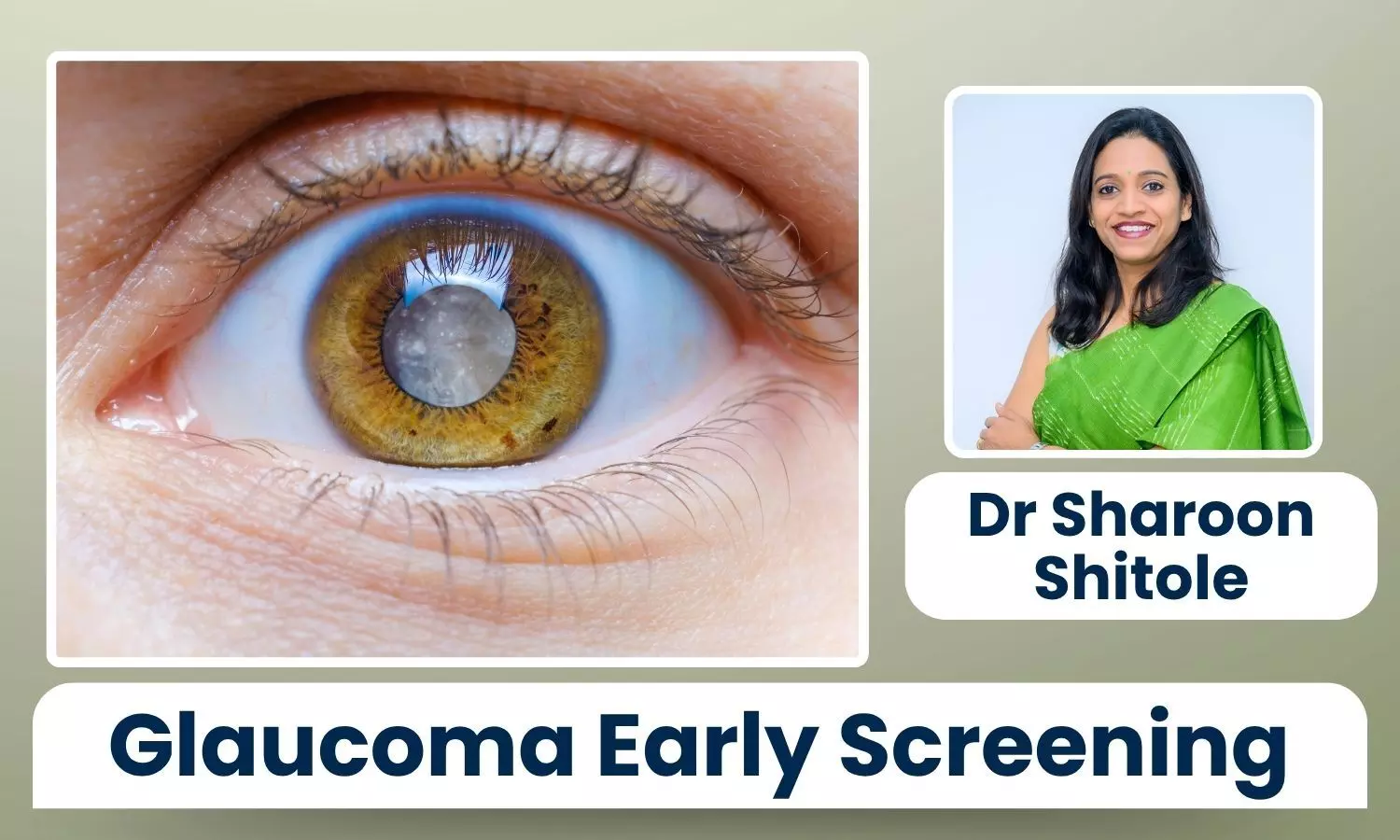Glaucoma in Young Adults: Why Early Screening Matters - Dr Sharoon Shitole

Glaucoma is often called the “silent thief of sight” because it gradually damages the optic nerve without showing obvious symptoms in the early stages. Most people associate glaucoma with older age, but it can also affect young adults.
When left undiagnosed, it may lead to irreversible vision loss. This is why early screening plays a critical role in protecting eye health, even for those in their twenties or thirties.
Understanding Glaucoma:
Glaucoma is a group of eye diseases that damage the optic nerve, the part of the eye that sends signals from the retina to the brain. The damage is usually linked to increased pressure inside the eye, known as intraocular pressure.
However, glaucoma can also occur with normal eye pressure. If not detected and managed in time, the condition may result in partial or complete blindness.
For young adults, the risk may not always be obvious. Unlike older patients, they often assume their vision is healthy and do not undergo regular eye checkups. Unfortunately, this lack of awareness can delay diagnosis until significant damage has already occurred.
Why Young Adults Should Be Concerned?
Although less common in younger age groups, glaucoma can still appear in the form of juvenile open-angle glaucoma or secondary glaucoma caused by injury, steroid use, or other eye conditions.
Lifestyle factors such as long hours on digital screens, stress, and lack of routine eye care also increase the need for attention.
The challenge with glaucoma is that it develops slowly and quietly. Young adults may not notice any change in vision until the disease has advanced. At that stage, treatment can only slow further damage, but cannot restore lost sight. Therefore, early detection is key to preventing long-term consequences.
Importance of Early Screening:
Screening for glaucoma involves a comprehensive eye exam by an eye doctor. This may include checking intraocular pressure, examining the optic nerve, testing peripheral vision, and sometimes using advanced imaging techniques.
For young adults with a family history of glaucoma, screening becomes even more important, as genetics is a major risk factor.
Early screening allows doctors to identify changes in eye pressure or optic nerve health before symptoms develop. This makes it possible to start treatment in time, often with simple measures such as prescription eye drops or laser procedures. Early intervention greatly reduces the risk of vision loss and helps preserve quality of life.
Treatment and Management:
If detected early, glaucoma can usually be managed successfully. The goal of treatment is to lower intraocular pressure and protect the optic nerve. Depending on the severity, treatment may include eye drops, oral medicines, laser therapy, or surgery in advanced cases.
For young adults, ongoing monitoring is just as important as the initial treatment. Regular checkups help doctors adjust the management plan and ensure that the disease remains under control. Following the treatment schedule carefully, even when no symptoms are present, is essential to protecting vision.
Taking Preventive Steps:
While not all cases of glaucoma can be prevented, young adults can take steps to reduce their risk. Scheduling regular eye exams, especially if there is a family history, is the most effective preventive measure.
Protecting the eyes from injury during sports or work, avoiding overuse of steroid medications without medical advice, and maintaining a healthy lifestyle can also help.
Being proactive about eye health means not waiting for symptoms to appear. Early screening offers peace of mind and, if needed, timely treatment to safeguard vision.
Glaucoma is not just a concern for the elderly. Young adults, too, can face this condition, often without realising it. Because the disease progresses silently, regular eye screenings are essential for early detection and management.
By taking simple preventive steps and seeking timely medical advice, young adults can protect their eyesight for the future. Early screening is not just a precaution; it is a powerful tool to prevent lifelong vision loss.
Disclaimer: The views expressed in this article are of the author and not of Health Dialogues. The Editorial/Content team of Health Dialogues has not contributed to the writing/editing/packaging of this article.


